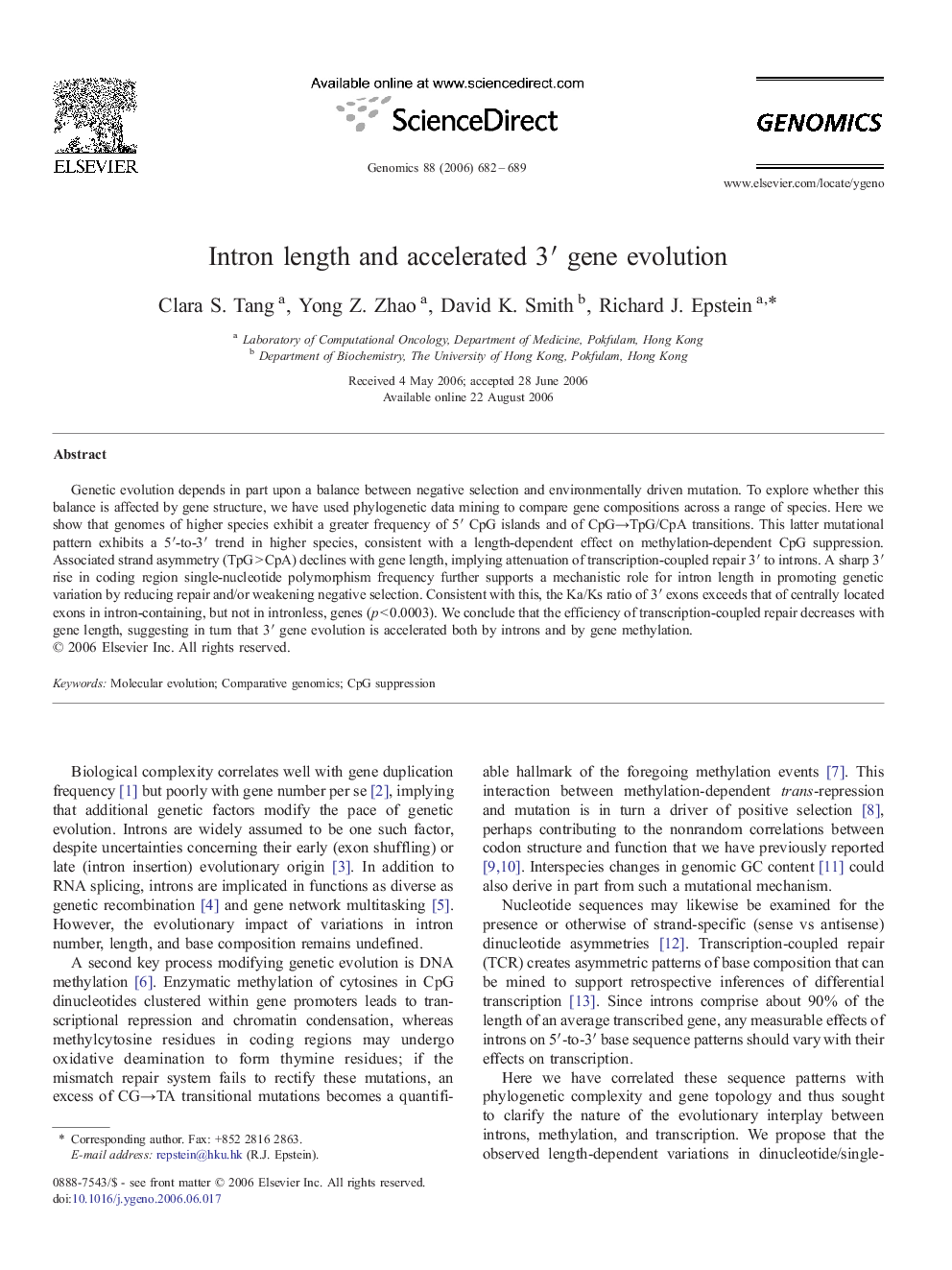| کد مقاله | کد نشریه | سال انتشار | مقاله انگلیسی | نسخه تمام متن |
|---|---|---|---|---|
| 5908034 | 1160971 | 2006 | 8 صفحه PDF | دانلود رایگان |

Genetic evolution depends in part upon a balance between negative selection and environmentally driven mutation. To explore whether this balance is affected by gene structure, we have used phylogenetic data mining to compare gene compositions across a range of species. Here we show that genomes of higher species exhibit a greater frequency of 5â² CpG islands and of CpGâTpG/CpA transitions. This latter mutational pattern exhibits a 5â²-to-3â² trend in higher species, consistent with a length-dependent effect on methylation-dependent CpG suppression. Associated strand asymmetry (TpG > CpA) declines with gene length, implying attenuation of transcription-coupled repair 3â² to introns. A sharp 3â² rise in coding region single-nucleotide polymorphism frequency further supports a mechanistic role for intron length in promoting genetic variation by reducing repair and/or weakening negative selection. Consistent with this, the Ka/Ks ratio of 3â² exons exceeds that of centrally located exons in intron-containing, but not in intronless, genes (p < 0.0003). We conclude that the efficiency of transcription-coupled repair decreases with gene length, suggesting in turn that 3â² gene evolution is accelerated both by introns and by gene methylation.
Journal: Genomics - Volume 88, Issue 6, December 2006, Pages 682-689